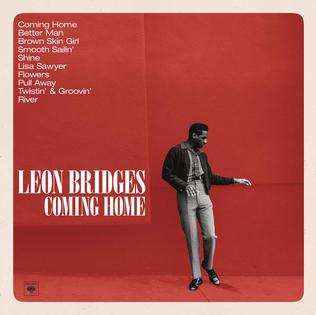 Lil Nas X’s “Old Town Road,” released in 2019, didn’t just top charts—it reshaped the landscape of popular music. From its humble beginnings on social media platforms to its unprecedented run at number one on the Billboard Hot 100, the song became a cultural phenomenon almost overnight. What made “Old Town Road” extraordinary wasn’t only its catchy hook or its genre-blurring production, but the way it challenged preconceived notions of what country and hip-hop could sound like together. With its infectious beat, clever lyrics, and memorable imagery, the track turned Lil Nas X into an overnight icon while sparking discussions about race, genre, and the evolving nature of music in the digital era. It was both a viral sensation and a carefully crafted piece of art, demonstrating that innovation often comes from unexpected combinations and bold ideas.
Lil Nas X’s “Old Town Road,” released in 2019, didn’t just top charts—it reshaped the landscape of popular music. From its humble beginnings on social media platforms to its unprecedented run at number one on the Billboard Hot 100, the song became a cultural phenomenon almost overnight. What made “Old Town Road” extraordinary wasn’t only its catchy hook or its genre-blurring production, but the way it challenged preconceived notions of what country and hip-hop could sound like together. With its infectious beat, clever lyrics, and memorable imagery, the track turned Lil Nas X into an overnight icon while sparking discussions about race, genre, and the evolving nature of music in the digital era. It was both a viral sensation and a carefully crafted piece of art, demonstrating that innovation often comes from unexpected combinations and bold ideas.
The genius of “Old Town Road” lies in its simplicity paired with cultural resonance. The song tells a story of independence and freedom, wrapped in cowboy imagery and trap production. Lil Nas X’s playful, almost nonchalant delivery makes the lyrics feel personal yet universal, allowing listeners to step into a narrative of rebellion and self-expression. The track’s rise was fueled by TikTok, where users embraced its catchy chorus and humorous potential, creating a new model for how songs could reach audiences. Its impact extended beyond music into fashion, memes, and broader pop culture, proving that a song could become a movement almost instantly.
A Genre-Defying Sound
“Old Town Road” is notable for its audacious blending of country and hip-hop elements. Producer YoungKio crafted a beat that borrows from Nine Inch Nails’ “34 Ghosts IV” sample, layering twangy banjo riffs over 808-heavy trap drums. This unusual combination created a sound that felt both nostalgic and modern, simultaneously evoking dusty Western landscapes and the energetic bounce of contemporary hip-hop. Lil Nas X’s vocals float effortlessly over the beat, his casual delivery amplifying the song’s charm and making it accessible to a wide audience.
The genre-defying nature of the track played a central role in its viral appeal. It was a song that didn’t fit neatly into traditional industry categories, which both sparked controversy and fueled curiosity. When Billboard initially removed “Old Town Road” from the Hot Country Songs chart, citing insufficient elements of country music, the decision ignited a public debate about race, genre boundaries, and gatekeeping in the music industry. This controversy only amplified the track’s popularity, demonstrating how cultural conversations could directly impact a song’s reach and legacy.
Lyrics of Rebellion and Playfulness
The lyrical content of “Old Town Road” is deceptively simple but packed with personality. Lines like “I’m gonna take my horse to the old town road / I’m gonna ride ’til I can’t no more” evoke imagery of freedom and escape, while also tapping into internet humor and meme culture. The lyrics present a rebellious, playful attitude—one that resonates with listeners who embrace individuality and nonconformity.
Beyond its surface, the song carries undertones of empowerment. Lil Nas X’s journey as a young, openly gay Black artist navigating a traditionally rigid music industry parallels the narrative of personal freedom expressed in the song. The playful cowboy imagery becomes symbolic: riding into a space where one belongs, on one’s own terms, in a world that may not have anticipated such a figure.
The simplicity of the lyrics also made them highly adaptable for TikTok users, who created countless remixes, dance challenges, and memes. This participatory aspect of the song’s success is a testament to the power of accessible storytelling in the digital age.
Visuals and Remix Culture
The music video for “Old Town Road,” released in 2019, further cemented its cultural impact. It blends Western motifs with modern humor, featuring Lil Nas X alongside horses, cowboys, and fantastical scenarios. The visuals amplify the song’s playful rebelliousness, creating a strong visual identity that complemented the audio experience.
Remixes played a pivotal role in the song’s dominance. The most notable remix, featuring Billy Ray Cyrus, bridged generational and genre gaps, giving the track a new dimension and expanding its appeal. Cyrus’ involvement added credibility to the country element of the song while demonstrating the power of collaboration in breaking down genre barriers. Multiple other remixes followed, featuring artists from various musical backgrounds, each iteration extending the song’s lifespan and cultural footprint. This approach showcased a modern strategy for maintaining relevance in a rapidly shifting music landscape, where social media engagement can be as crucial as radio play or album sales.
Cultural Phenomenon and Social Impact
The rise of “Old Town Road” coincided with a moment in which music, memes, and social media intersected in unprecedented ways. TikTok was instrumental in driving the song to viral fame, as users created dance routines, humorous skits, and countless remixes, effectively turning the song into a participatory experience. Its success demonstrated that the relationship between artists and fans had evolved: listeners were not passive consumers but active contributors to a song’s trajectory.
The track also sparked important conversations about race and representation in music. Its initial exclusion from the country chart ignited debate over what qualifies as “country music” and who gets to define it. Lil Nas X responded with wit and insight, using social media to engage fans and elevate the discussion. This episode highlighted how digital platforms empower artists to challenge industry norms and engage directly with audiences.
Furthermore, the song’s message of self-expression and individuality resonated across communities. It became an anthem not just for fans of hip-hop or country, but for anyone who has felt constrained by societal expectations. Its playful defiance encouraged listeners to embrace their uniqueness, demonstrating the transformative power of music as both entertainment and cultural commentary.
Legacy and Influence
“Old Town Road” has had a profound impact on contemporary music, signaling a new era of genre fluidity and digital virality. Its success has inspired artists to experiment boldly with hybrid sounds, blending elements from traditionally distinct genres to create innovative tracks. The song also underscored the importance of social media in shaping musical careers, proving that TikTok, memes, and viral content can be as influential as traditional promotion channels.
Beyond its technical and commercial achievements, the song’s cultural resonance remains significant. Lil Nas X leveraged its success to push conversations about LGBTQ+ visibility, artistic freedom, and internet-era creativity. By embracing his identity and using his platform for self-expression, he demonstrated that a single track could become a catalyst for both musical innovation and social dialogue.
The legacy of “Old Town Road” extends into its record-breaking chart performance: it spent nineteen consecutive weeks at number one on the Billboard Hot 100, a feat that tied the record at the time. Its commercial dominance and crossover appeal solidified its status as one of the defining tracks of 2019 and one of the most memorable songs of the decade.
Conclusion: A Modern Classic
Lil Nas X’s “Old Town Road” is more than just a viral hit; it is a cultural milestone. Released in 2019, it challenged genre conventions, redefined pathways to success in the music industry, and created a platform for discussions about identity, creativity, and self-expression. Its blend of trap beats, country-inspired melodies, and humorous, relatable lyrics captured the attention of a global audience, making it a song that is both fun and culturally significant.
The track’s success illustrates the power of innovation in modern music. By blending genres, embracing social media, and crafting a narrative that is both personal and universal, Lil Nas X created a song that transcends its initial context. “Old Town Road” remains a reminder that music can be a space for experimentation, empowerment, and community, demonstrating how one track can shift perceptions, spark conversations, and capture the imagination of millions.
Ultimately, “Old Town Road” endures because it is bold, inventive, and unapologetically itself. It is a modern classic that defines not only the sound of 2019 but also the possibilities of music in an era defined by rapid change, digital creativity, and cultural fluidity. Lil Nas X transformed a simple hook into a phenomenon, proving that a song can simultaneously entertain, inspire, and redefine the musical landscape.


